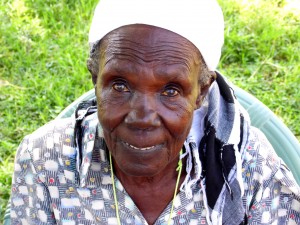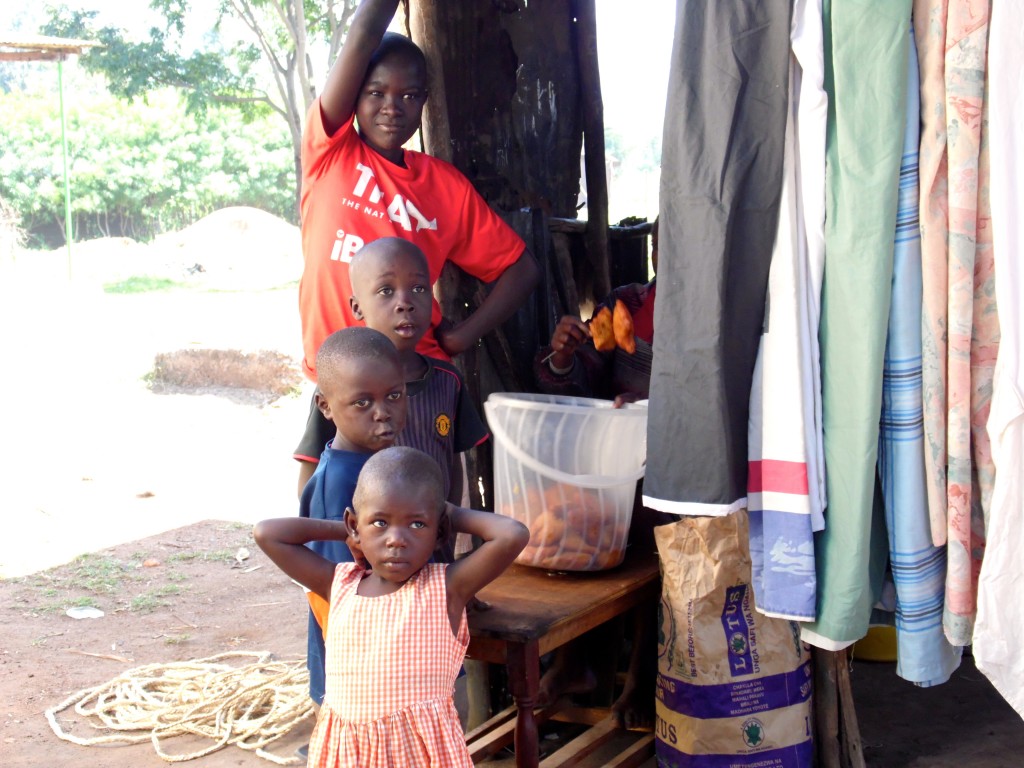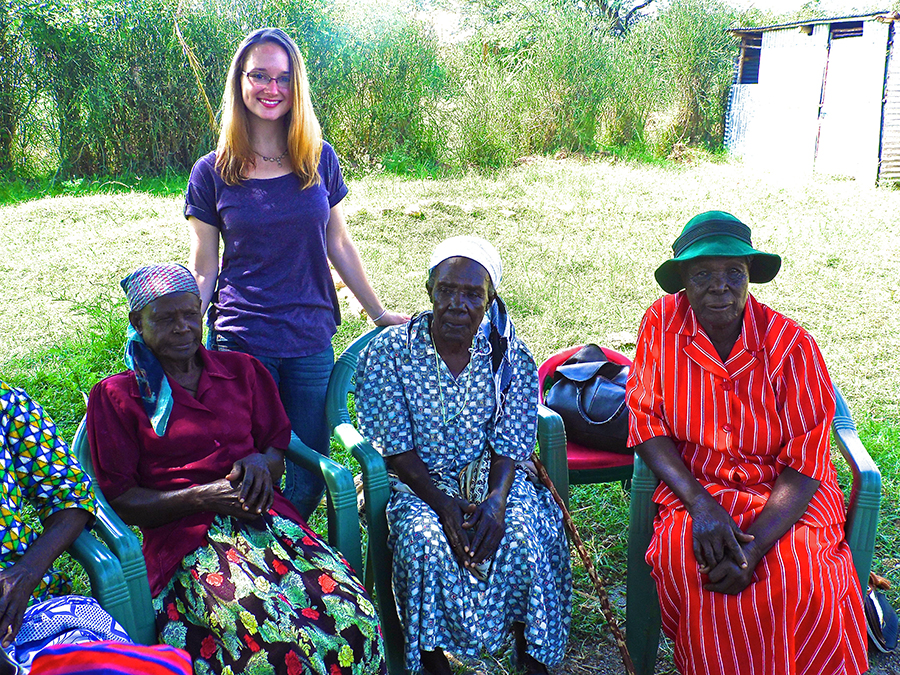This summer, I’ve asked our Franklin Delano Roosevelt Fellows to check in periodically to let us know how they are doing. Here’s the first report, from Amanda Hess, in Kenya: MDW
So far this trip has been absolutely incredible! The classes and educational aspect of this experience are exceptional but it’s the Kenyan people who’ve made it so profound for me. I’m working with a community based organization called St. Ann’s. They represent a small village about 45 minutes outside of town. This little community has been nearly devastated from HIV/Aids, an annual cholera outbreak from nearly nonexistent water sanitation, and a generalized poverty which has it’s grip on every home I’ve visited so far.
 I’m working closely with the matriarch of this village, Lorane. She is a widowed superwoman. After 5 children, the youngest suffering from a mental disability which prevents him from being able to speak, HIV killed her husband. She’s poured herself not only into her family (all of her capable children have either gone to or are in college) but also her community. She’s begun a micro lending program for the grandmothers of their village and she lead the plea for the installation of a water kiosk, which will provide everyone with clean drinking water.
I’m working closely with the matriarch of this village, Lorane. She is a widowed superwoman. After 5 children, the youngest suffering from a mental disability which prevents him from being able to speak, HIV killed her husband. She’s poured herself not only into her family (all of her capable children have either gone to or are in college) but also her community. She’s begun a micro lending program for the grandmothers of their village and she lead the plea for the installation of a water kiosk, which will provide everyone with clean drinking water.
My project is to offer this community with something sustainable that will lead to their betterment and a heightened quality of life with the fewest unintended negative consequences as possible. At first, this was a bit daunting. However, I believe that I’ve devised a program that will actually make a substantial difference for these beautiful people.
Because of the HIV/Aids pandemic about 97 children have been orphaned as a result. Most often these children have no family members who are either close enough in proximity to take care of them or they are too impoverished to offer them anything that would make much of a difference. Also, because these deceased parents were usually unable to work in the last year to several months of their life they’ve left their children with no inheritance. So, the eldest of the siblings is responsible for taking care of the younger children. (Often times the eldest is a boy and there is a huge cultural stigma against men rearing children and this has posed to be an unusual barrier in their advancing within society.)
 My program will be a joint micro-lending/mentorship program geared towards supporting these eldest orphan children who have nothing but are still expected to provide for their siblings. These children will be paired with a mentor; someone from the community who is trustworthy and also a business owner. this mentor will act as a co-signer for a micro loan from Kiva (we’ve already begun the process for setting them up with profiles) that will be awarded to our young entrepreneurs once they have devised a business plan with the help of myself and their mentor. (Training will also include basic personal finance management and accounting.) The mentors will work closely with their apprentices to establish the business and repay the loan. As incentive for our mentors, once the loan is repaid and the business has stabilized (making an average daily living wage for the child and the child’s family) the mentor will receive %10 of the profits and will continue to aid the child with their accounting, savings, and finding and maintaining healthy business relationships with clientele. The %10 is also reason for the mentor to do everything possible to make sure the business is thriving because the better the business dose, the higher that %10 will be.
My program will be a joint micro-lending/mentorship program geared towards supporting these eldest orphan children who have nothing but are still expected to provide for their siblings. These children will be paired with a mentor; someone from the community who is trustworthy and also a business owner. this mentor will act as a co-signer for a micro loan from Kiva (we’ve already begun the process for setting them up with profiles) that will be awarded to our young entrepreneurs once they have devised a business plan with the help of myself and their mentor. (Training will also include basic personal finance management and accounting.) The mentors will work closely with their apprentices to establish the business and repay the loan. As incentive for our mentors, once the loan is repaid and the business has stabilized (making an average daily living wage for the child and the child’s family) the mentor will receive %10 of the profits and will continue to aid the child with their accounting, savings, and finding and maintaining healthy business relationships with clientele. The %10 is also reason for the mentor to do everything possible to make sure the business is thriving because the better the business dose, the higher that %10 will be.
The mentor/apprentice pair will report bi-weekly to the community board. This includes the chair members of St. Ann’s as well as the Chief of the village. During these meetings the progress of the business will be reported and if any obstacles or problems have arisen the board will offer advice and assistance whenever necessary. Board members will also be given the authority to “check in” on the pairs whenever they like, similar to a health inspector, as a way to ensure the child’s protection from any sort of corruption.
The chief has volunteered to serve as a mentor to the mentors. They will have a monthly meeting to make sure everything is running smoothly and to offer one another ideas, advice, and potentially partner whenever possible. Once our young entrepreneurs are capable of running their business on their own (something that will be determined by the board and the child) they will take over 100% of the profits.
The community is incredibly excited to get started and I am so thrilled that they’ve been so receptive to my plan. Next week we’ll be pairing our mentors with the children. (On average these kids are around 16)
Thank you again for your support and I’ll be sure to send updates as the program develops!

